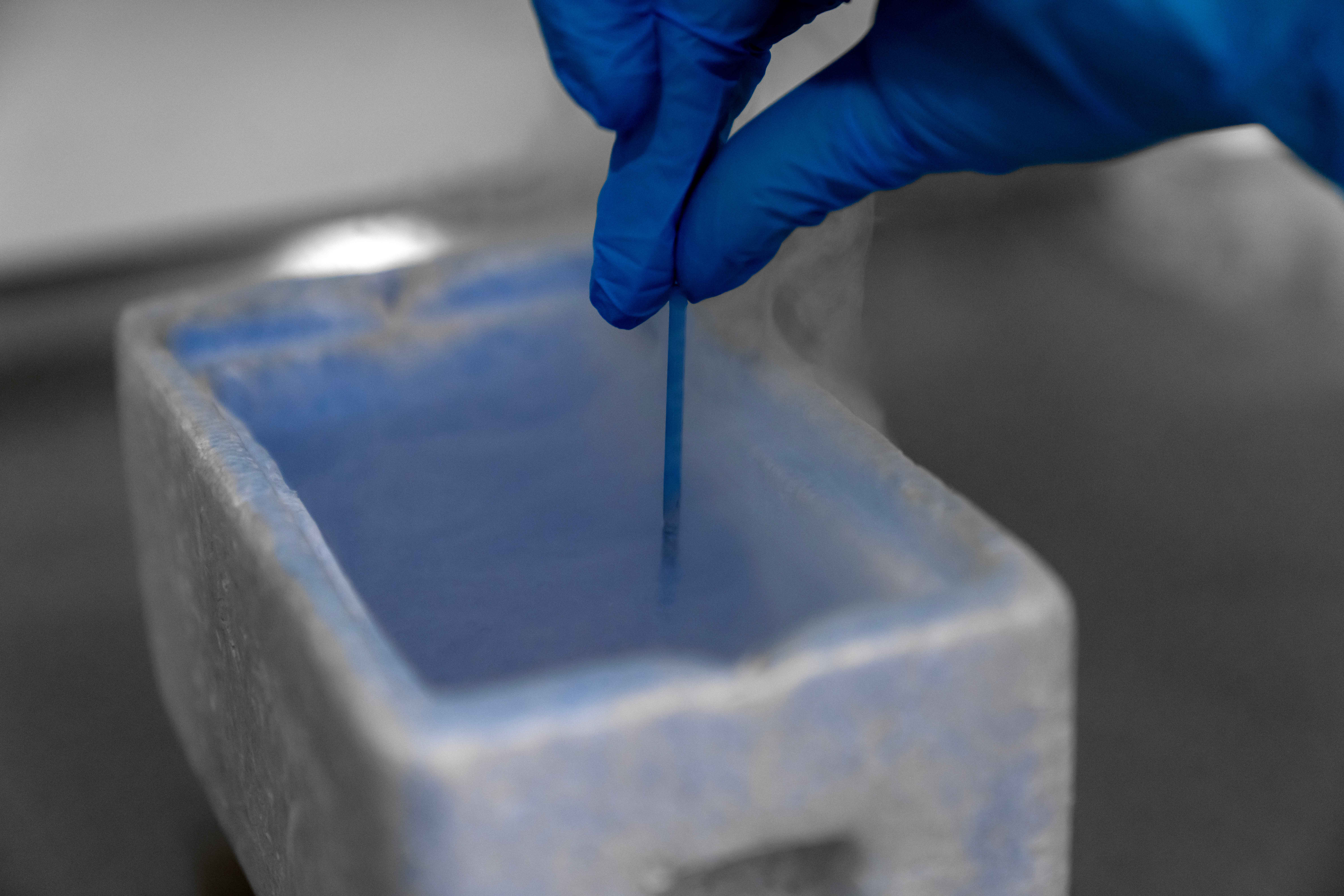As a longtime user of Natural Family Planning (NFP), also known to many as Fertility Awareness Based Methods (FABM), I am always watching for the latest developments in technology to help chart my cycle. In April 2016, for instance, I was very excited to read about the new at-home progesterone tests being developed by MFB Fertility, Inc., a company focused on creating new in-home diagnostic tests for fertility monitoring in women.
At the time, I was in the midst of a very frustrating series of cycles, in which my fertility monitor—used in conjunction with the Marquette Method—missed peak three cycles in a row. An in-home test that could be used to confirm ovulation via measuring post-peak progesterone levels even if my monitor missed peak seemed like a dream come true. I eagerly contributed to the crowdfunding effort and was excited to try out the finished product. Years later, I’ve had the pleasure of testing those strips. After a couple months of use, I’ve been pleased with the results. I’ve found them to be an effective way to cross-check my fertility monitor’s readings (and I’ve been taking temps via the Wink thermometer as well, just to have an additional check in place).
Ever since this happened, I’ve been intrigued at the prospect of how much more accessible we can make fertility testing for women. So I was excited to hear that recently MFB has had another development in progress—a smartphone app that would allow women to track progesterone, human chorionic gonadotropin (HCG, a hormone produced by the placenta after implantation), and other hormones via an at-home blood test.
It is an understatement to say this technology would be revolutionary for women using NFP to avoid pregnancy as well as women struggling with infertility issues. Currently, tests like these can be hard for women to access at local labs, and many have to shell out hundreds of dollars or get on payment plans to afford having locally drawn blood samples mailed to outside labs that can read the results. Even figuring out the timing to get to the nearest lab for blood tests is a hassle since the blood samples need to be taken every 48 hours, or only on a certain day of one’s cycle (a day that is often difficult to predict more than a few days in advance).
The CEO of MFB Fertility, Amy Beckley introduced the product saying, “We are developing a mobile phone app-based system that would allow women to quantitatively track reproductive hormones at home. This product would lead to better detection of hormonal imbalances and decreased cost of infertility care.”
Sounds great, right? Women struggling with infertility or who are simply trying to monitor their reproductive health do not need more headaches and expenses than necessary. Which is why my jaw dropped when I learned that the technology was denied government grant funding due to the accusation of being “harmful.”
Beckley provided a quote from the denial letter she received from the FDA: “My major concern is that this device should not be used without physician guidance. The idea of marketing this device to women for home use is potentially harmful. There is high risk for misuse and misdiagnosis, causing unnecessary anxiety.”
Wow. The risk isn’t to her physical health, the FDA is in effect saying, it’s the risk of stirring up her emotions. As a woman who has monitored her fertility with FABMs and at-home testing for years, I find the FDA’s wording to be patronizing and shamefully unscientific.
It’s as if the FDA is saying women are too emotional to monitor their own health via in-home devices. We can’t be trusted to bother our pretty little heads about our hormone levels; we shouldn’t make the effort to educate ourselves lest we get the vapors. The medical community should be far beyond the days of treating women’s health like an area in which women are too delicate to manage our health like any other person.
It’s worth recalling how similar pushback occurred when home pregnancy tests were being created for home use—some doctors predicted that the availability of home pregnancy tests would cause an epidemic of suicides and psychotic breaks, or that they would simply be too difficult for women to figure out how to use. Of course, we now know this was not true.
It is common practice for people with diabetes to test their blood sugar at home, and for people with hypertension to test their blood pressure at home. You can even take a test to analyze your DNA at home! (Although you do need to send that particular test out for analysis. Still, you take the actual test at home and then mail it off for results, which is more convenient than having to find time to go to a lab.)
The FDA does not consider it “harmful” for those people to monitor their medical conditions at home, but somehow it would be “harmful” for women to test their own fertility levels. Instead, we need to just trust our doctors—even if our doctors are woefully illiterate on fertility awareness and won’t take us seriously, and will just keep pushing big-Pharma-backed contraceptives or IVF on us as a way to “fix” our fertility problems. Women like me who use Fertility Awareness Based Methods are significantly under-served by the medical community in America today, and it looks like it’s getting worse.
The real harm for women is not having more knowledge about their reproductive health—it’s when we deny it to them. Which is why Beckley has noted, even in the rare cases when infertility treatment and care is covered by health insurance plans “women must wait 1 year after they [are actively] trying to conceive or after multiple miscarriages to seek medical treatment.” If we actually are thinking about women’s welfare, according to Beckley, “it is harmful NOT to create these types of home hormone monitoring devices.”
It has yet to be determined whether Beckley and her team can find alternate funding sources to develop the app and associated blood tests.
I speak for myself and countless American women struggling with fertility issues and tracking when I say that this technology would be a game-changer in giving women easier access to much-needed health information. And women today need greater support in fertility awareness not less.







Note to FDA: “You don’t have any problems with the damaging effects of the Pill, though?WHAT kind of upside-down assessment is that!?!”
Money. It’s always about money. The FDA is bought and paid for.
Gee, there didn’t seem to be much concern about Plan B–which has lists death as a possible complication….
Or RU-486. They didn’t even blink at the off-label use of one of the drugs (misoprostol).
I’m so sad to hear this! I was one of the original funders of the progesterone tests too, and I’ve been eager to see the new monitor in use!